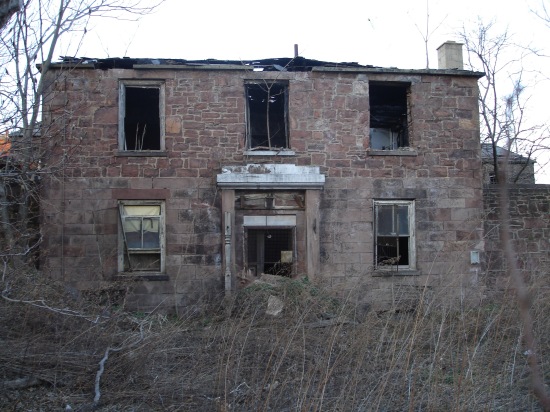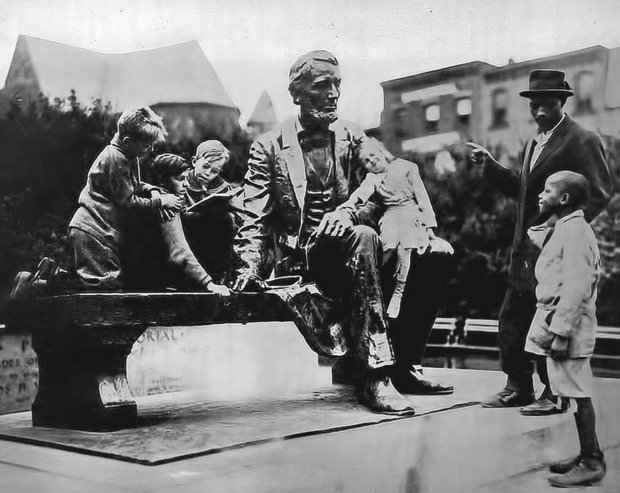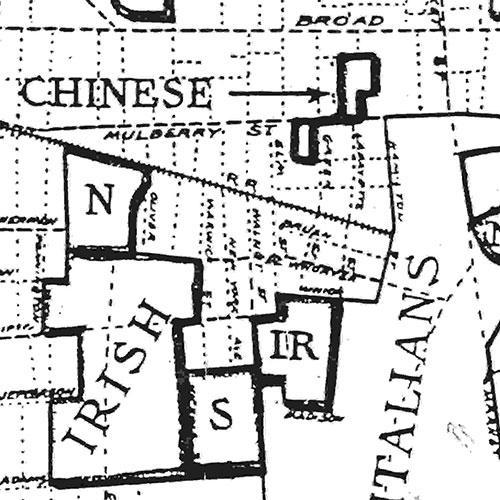
From Chestnut Street north went
that road of our childhood,
Fascinating all the way
From the tavern owned by one
classmate’s folks,
Past a couple of factories
Fish market, shoemaker’s shop,
hardware, grocery stores, laundry,
And a drug store with several
large, shining globes,
Filled with liquid—red, yellow,
green, blue—
And the candy stores where a
penny bought
Lafayettes, lollipops, licorice, or
Mary Jane,
Or even a grab-bag of assorted
Sweet, crunchy, chewy morsels,
Or a nickel bar of brown or pink or white taffy;
And on through Chinatown
Where restaurants served strange foods,
To the markets which
We could only visit on Saturdays.
The Markets! outdoor extravaganzas
Of meats, eggs, produce, fish, bread,
And, wondrous bright,
A great revolving cylinder
roasting peanuts—
What a smell! and what a taste!
Hot peanuts, m-m-m, delicious!
Oh! what an adventure a
trip to the markets—
of Mulberry Street was!
Through busy crowds of people all intent,
And maybe bumping us about,
But it did not bother us.
The joy of being in the
middle of it all
Went home with us to
be savored
Till we went that way again.
Alma Flagg’s trip up “old Mulberry Street” can be traced (in reverse order) through the listings in Price & Lee’s 1940 Newark city directory, of which a small section is shown here. The poem is found in Flagg’s collection Lines, colors, and more (1998).





